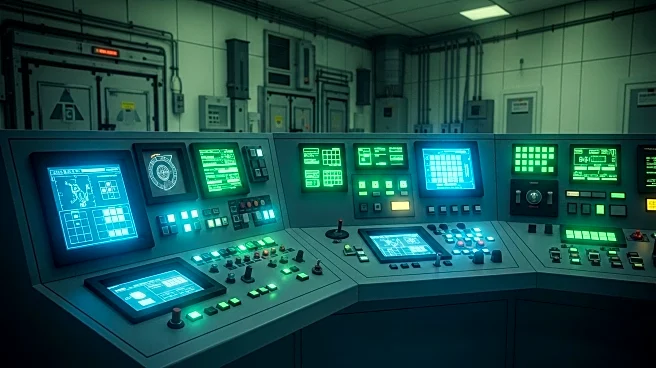What's Happening?
The International Atomic Energy Agency (IAEA) Director General, Rafael Grossi, is actively engaging with Russia and Ukraine to restore off-site power to the Zaporizhzhia nuclear power plant, which has been without external power since September 23. The plant, Europe's largest, is currently relying on emergency diesel generators to cool its reactor fuel. Grossi emphasized that the restoration of power hinges on the 'political will' of both nations and the improvement of the security situation to allow technicians to safely conduct repairs. The ongoing conflict poses significant risks to the plant's operations and the safety of personnel involved in maintenance efforts.
Why It's Important?
The situation at the Zaporizhzhia nuclear plant is critical, as prolonged reliance on emergency power sources increases the risk of nuclear safety incidents. The plant's operational stability is vital not only for Ukraine but also for the broader European region, given its size and capacity. The IAEA's involvement underscores the international concern over nuclear safety amidst geopolitical tensions. The resolution of this issue could set a precedent for international cooperation in conflict zones, highlighting the importance of diplomatic engagement in ensuring nuclear safety and preventing potential environmental disasters.
What's Next?
The next steps involve continued diplomatic discussions facilitated by the IAEA to secure commitments from both Russia and Ukraine to improve the security situation around the plant. This would enable technicians to safely conduct necessary repairs. The international community, including European nations, may increase pressure on both countries to prioritize nuclear safety over military objectives. Additionally, further monitoring and reporting by the IAEA will be crucial in assessing the plant's safety and operational status.
Beyond the Headlines
The situation at Zaporizhzhia highlights the complex interplay between geopolitical conflicts and nuclear safety. It raises ethical questions about the responsibilities of nations in safeguarding critical infrastructure during wartime. The incident also underscores the need for robust international frameworks to address nuclear safety in conflict zones, potentially leading to new protocols or agreements aimed at protecting such facilities from military actions.












